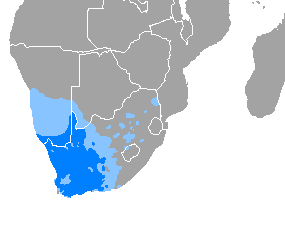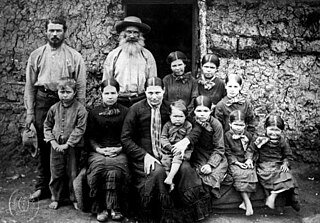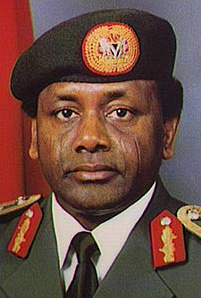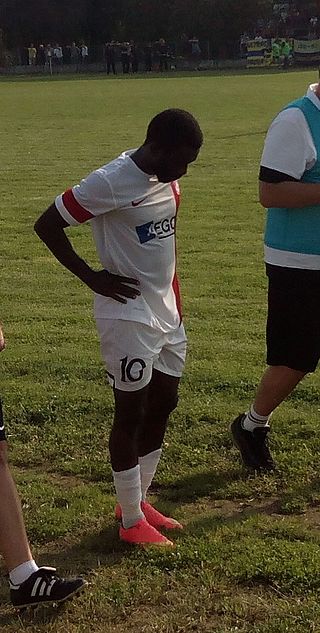Related Research Articles

Afrikaans is a West Germanic language that evolved in the Dutch Cape Colony from the Dutch vernacular of Holland proper used by Dutch, French, and German settlers and people enslaved by them. Afrikaans gradually began to develop distinguishing characteristics during the course of the 18th century. Now spoken in South Africa, Namibia and Botswana, Zambia and Zimbabwe, estimates c. 2010 of the total number of Afrikaans speakers range between 15 and 23 million. Most linguists consider Afrikaans to be a partly creole language.

Boers are the descendants of the proto Afrikaans-speaking Free Burghers of the eastern Cape frontier in Southern Africa during the 17th, 18th, and 19th centuries. From 1652 to 1795, the Dutch East India Company controlled Dutch Cape Colony, but the United Kingdom incorporated it into the British Empire in 1806. The name of the group is derived from Trekboer then later "boer", which means "farmer" in Dutch and Afrikaans.

The very first modern humans are believed to have inhabited South Africa more than 100,000 years ago. In 1999, Unesco designated the region the Cradle of Humankind World Heritage site. South Africa's first known inhabitants have been referred to as the Khoisan, the Khoekhoe and the San. Starting in about 1,000 BCE, these groups were then joined by people who migrated from Western and Central Africa during what is known as the Bantu expansion southwards through Africa.

Johan Anthoniszoon "Jan" van Riebeeck was a Dutch navigator and colonial administrator of the Dutch East India Company.

Cape Coloureds are a South African ethnic classification consisting primarily of persons of mixed race African, Asian and European descent.

Sandton is a financial, commercial and residential area, located in the northern part of the City of Johannesburg Metropolitan Municipality. Formerly an independent municipality, Sandton's name came from the combination of two of its suburbs, Sandown and Bryanston.

Sani Abacha ; 20 September 1943 – 8 June 1998) was a Nigerian military officer and politician who ruled as the military head of state after seizing power in 1993 until his death in 1998. Abacha's seizure of power was the last successful coup d'état in Nigerian military history.

The 1992 Los Angeles riots, were a series of riots and civil disturbances that occurred in Los Angeles County, California, United States, during April and May 1992. Unrest began in South Central Los Angeles on April 29, after a jury acquitted four officers of the Los Angeles Police Department (LAPD) charged with using excessive force in the arrest and beating of Rodney King. The incident had been videotaped by George Holliday, who was a bystander to the incident, and was heavily broadcast in various news and media outlets.
The Defence Intelligence Division of the South African National Defence Force is the primary military intelligence agency of South Africa which came into being on 27 April 1994. The other intelligence agencies of the country are:

Steven Jerome Pienaar is a South African former professional footballer and current assistant coach of the U18 team of the Ajax Youth Academy.

South Africa has a 'hybrid' or 'mixed' legal system, formed by the interweaving of a number of distinct legal traditions: a civil law system inherited from the Dutch, a common law system inherited from the British, and a customary law system inherited from indigenous Africans. These traditions have had a complex interrelationship, with the English influence most apparent in procedural aspects of the legal system and methods of adjudication, and the Roman-Dutch influence most visible in its substantive private law. As a general rule, South Africa follows English law in both criminal and civil procedure, company law, constitutional law and the law of evidence; while Roman-Dutch common law is followed in the South African contract law, law of delict (tort), law of persons, law of things, family law, etc. With the commencement in 1994 of the interim Constitution, and in 1997 its replacement, the final Constitution, another strand has been added to this weave.

South Africa, officially the Republic of South Africa, is the southernmost country in Africa. It is bounded to the south by 2,798 kilometres (1,739 mi) of coastline that stretches along the South Atlantic and Indian Oceans; to the north by the neighbouring countries of Namibia, Botswana, and Zimbabwe; and to the east and northeast by Mozambique and Eswatini. It also completely enclaves the country Lesotho. It is the southernmost country on the mainland of the Old World, and the second-most populous country located entirely south of the equator, after Tanzania. South Africa is a biodiversity hotspot, with unique biomes, plant and animal life. With over 62 million people, the country is the world's 23rd-most populous nation and covers an area of 1,221,037 square kilometres. Pretoria is the administrative capital, while Cape Town, as the seat of Parliament, is the legislative capital. Bloemfontein has traditionally been regarded as the judicial capital. The largest city, and site of highest court is Johannesburg.

Prior to 1994, immigrants from elsewhere faced discrimination and even violence in South Africa due competition for scarce economic opportunities. After majority rule in 1994, contrary to expectations, the incidence of xenophobia increased. Between 2000 and March 2008, at least 7 people died in what were identified as xenophobic attacks. In May 2008, a series of attacks left 12 people dead; although 10 of those killed were South African citizens. The attacks were partly motivated by xenophobia. In 2015, another nationwide spike in xenophobic attacks against immigrants in general prompted a number of foreign governments to begin repatriating their citizens. A Pew Research poll conducted in 2018 showed that 62% of South Africans viewed immigrants as a burden on society by taking jobs and social benefits and that 61% of South Africans thought that immigrants were more responsible for crime than other groups. Based on various police reports 60% of suspects arrested for violent crimes in Gauteng South Africa are illegal immigrants, between 2015 and 2016. The number of foreign nationals who have been arrested by the Johannesburg Metropolitan Police Department (JMPD) between 2016 and 2019 sit at 7841. Between 2010 and 2017 the illegal immigrant community in South Africa increased from 2 million people to 4 million people. The proportion of South Africa's total population that is foreign born increased from 2.8% in 2005 to 7% in 2019, according to the United Nations International Organization for Migration, in spite of widespread xenophobia in the country. This made South Africa the largest recipient of immigrants on the African continent in 2019.

Afrikaners are a Southern African ethnic group descended from predominantly Dutch settlers first arriving at the Cape of Good Hope in 1652. Until 1994, they dominated South Africa's politics as well as the country's commercial agricultural sector.

Dutch is a West Germanic language spoken by about 25 million people as a first language and 5 million as a second language. It is the third most widely spoken Germanic language, after its close relatives English and German. Afrikaans is a separate but somewhat mutually intelligible sister language of modern Dutch, and a daughter language of an earlier form of Dutch. It is spoken, to some degree, by at least 16 million people, mainly in South Africa and Namibia, evolving from the Cape Dutch dialects of Southern Africa. The dialects used in Belgium and in Suriname, meanwhile, are all guided by the Dutch Language Union.

Roelof Erasmus van der Merwe is a Dutch-South African professional cricketer who has played internationally for both South Africa and the Netherlands, one of the few players to represent more than one international team.

Ibrahim Danda Rabiu is a Nigerian professional footballer who plays as an attacking midfielder.
Duduzane Zuma is the son of the former president of South Africa, Jacob Zuma.
Kopeng Obed Bapela is a South African politician who is currently serving as the Deputy Minister of Public Enterprises since 6 March 2023. Before that, he was Deputy Minister of Cooperative Governance and Traditional Affairs from 2014 to 2023. A member of the African National Congress (ANC), he has been a member of the National Assembly since 2002 and a deputy minister since 2010.

The 2021 South African unrest, also known as the July 2021 riots, the Zuma unrest or Zuma riots, was a wave of civil unrest that occurred in South Africa's KwaZulu-Natal and Gauteng provinces from 9 to 18 July 2021, sparked by the imprisonment of former President Jacob Zuma for contempt of court. Resulting protests against the incarceration triggered wider rioting and looting, much of it said to be undertaken by people not in support of Zuma and fuelled by job layoffs and economic inequality worsened by the COVID-19 pandemic policies. The unrest began in the province of KwaZulu-Natal on the evening of 9 July, and spread to the province of Gauteng on the evening of 11 July, and was the worst violence that South Africa had experienced since the end of Apartheid.